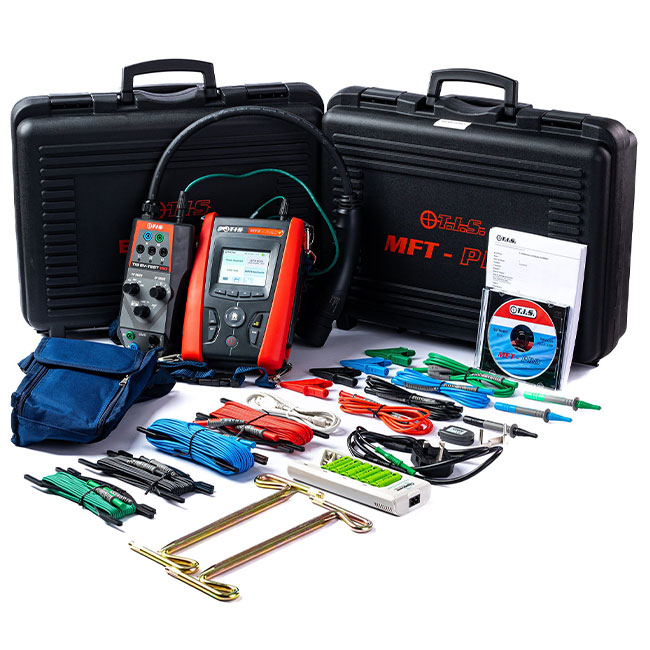
The public charging network for electric vehicles (EVs) is increasing and improving all the time. Demands for convenient and fast charging equipment is growing in proportion to the number of EVs being sold and driven on UK roads. With this comes a requirement to install, test and maintain electric vehicle supply equipment (EVSE) to industry standards, and Test Instrument Solutions has a range of EVSE testing equipment and accessories to choose from.
Testing equipment is used to confirm the safe installation and performance of EVSE in residential homes and commercial businesses, as well as public charging stations on residential streets, in service stations and in public places such as supermarkets, leisure centres and retail complexes. But what testing needs to take place and how do diagnostic features within EVSE testing equipment identify problems?
Functional tests
EVSE testing equipment needs to check that smart EV charging stations can:
- Initiate charging
- Communicate with the vehicle properly
- Safely manage different charging levels
- Shut down or enter safe modes when errors occur
These basic functional tests are part of the commissioning process when a charging station is first installed, but also confirm the ongoing compliance of the EVSE at regular intervals during operation.
Safety tests
Routine safety tests during installation and maintenance of EVSE include:
- Verifying that the charging equipment meets industry standards
- Minimising the risk of electric shock through suitable insulation and earthing
- Minimising the risk of overheating and fire hazards through current leakage and other performance issues
- There is an emergency shutdown process in place when errors occur
- The EVSE unit is secure and tamper proof
Performance tests
Various tests need to be undertaken to ensure the charging unit is capable of seamless charging from one vehicle to the next, bearing in mind it doesn’t know what type of vehicle is going to use the EVSE for charging purposes. So testing needs to:
- Confirm the EVSE can communicate with different EV models and charger networks
- Ensure there is a compatible user experience with all EV models
- Assess a consistent charger speed and efficiency with different EV models
- Ensure there is a consistent and accurate energy delivery under different load conditions
Currently, the communication standard that is most common between different types of EV chargers is the OCPP.
What is the OCPP?
This is known as the Open Charge Point Protocol, and is a process through which the different charge points within the national EV charging infrastructure can communicate and exchange data. So the OCPP provides features such as remote monitoring, billing and management, via a smart app. The OCPP is effectively an open source shared language that enables a seamless integration of different charging equipment. It is an industry standard protocol which facilitates common interoperability between different charging equipment from different manufacturers. It is therefore essential in providing a seamless EV charging experience.
Understanding, monitoring and testing the OCPP is therefore central to the diagnostic processes of EVSE testing. And a range of tests to confirm the effectiveness of the OCPP is an important role of the diagnostic tools within your EVSE testing equipment.
Professional EVSE testing equipment from Test Instrument Solutions
You can check out our range of EVSE testing equipment and accessories and speak to our experts about the range of testing you need to undertake, and what EVSE testing equipment is most suitable for you.
Please note that this section is for information purposes only. Anyone using equipment referred to in this section must be suitably qualified and/or experienced within the respective field. If in doubt before use, please consult a qualified electrician or engineer & thoroughly read all instruction booklets.